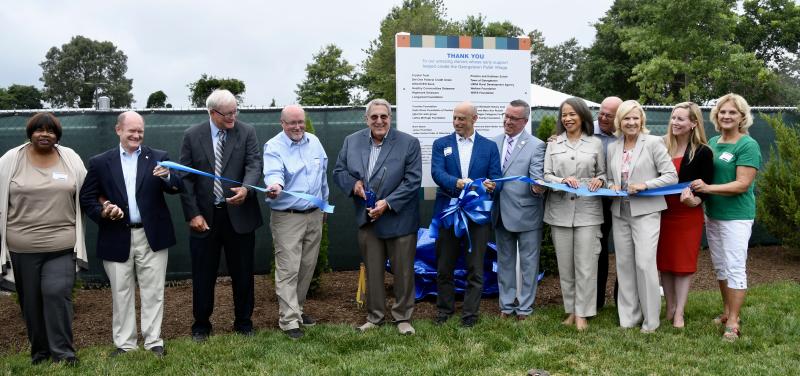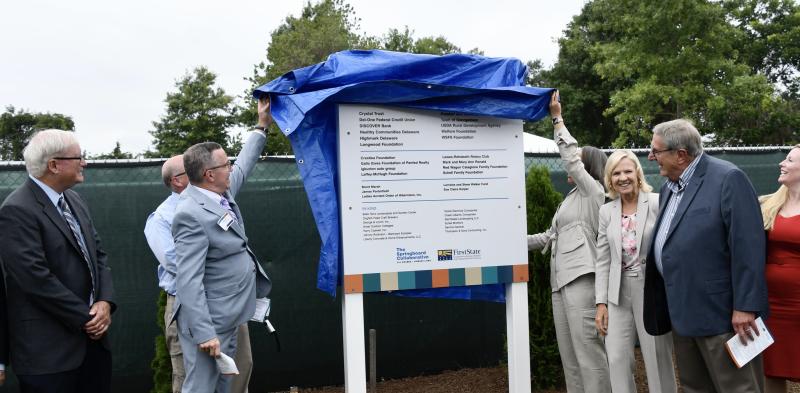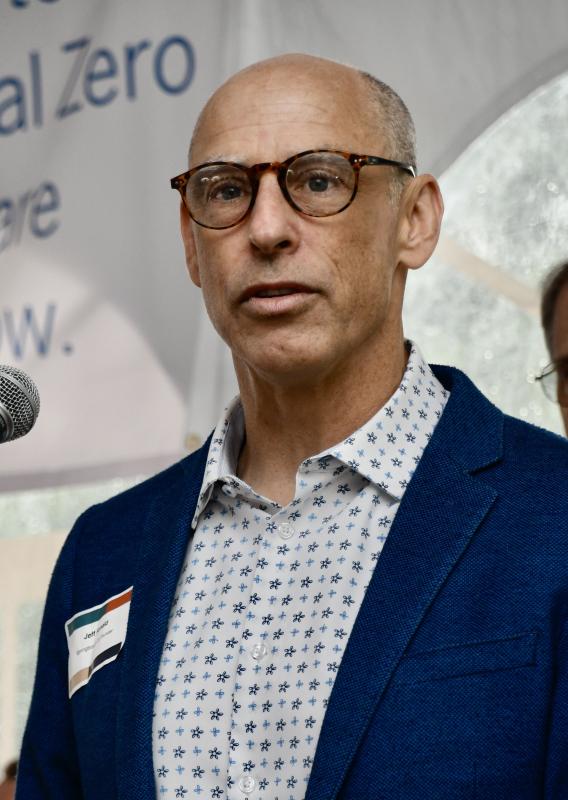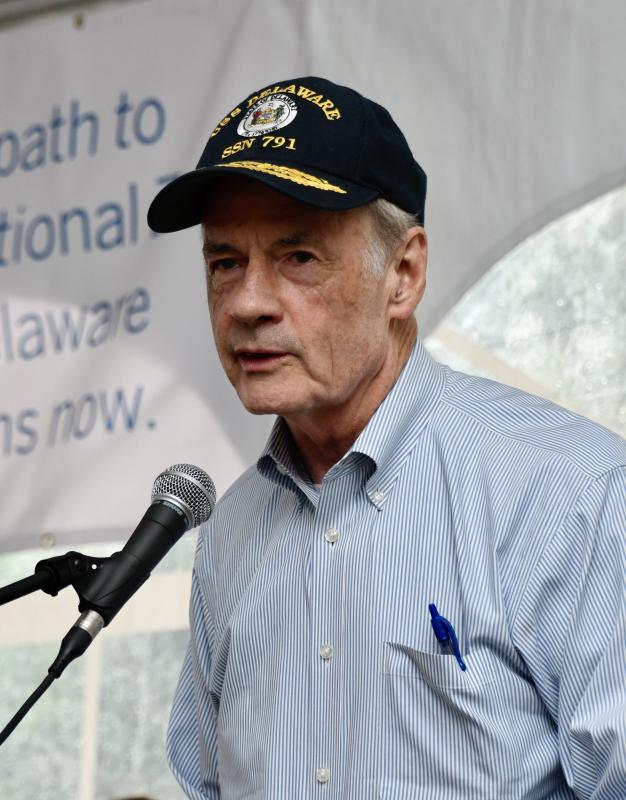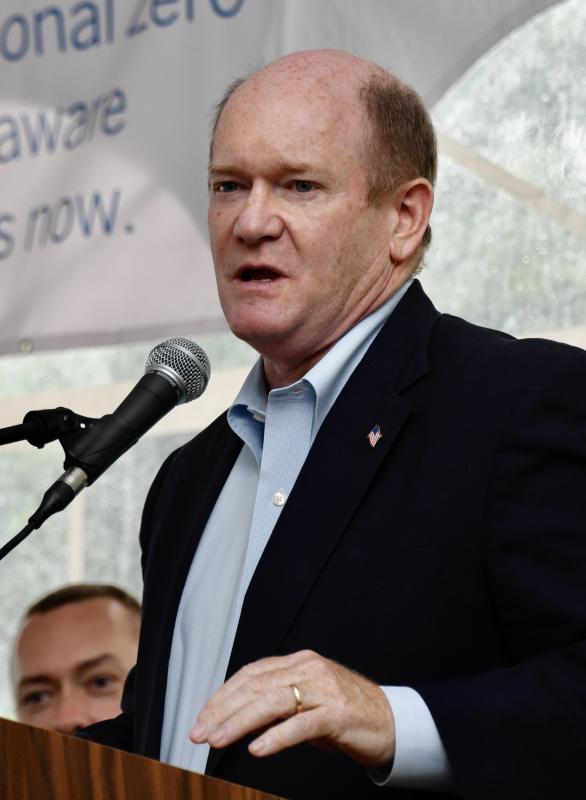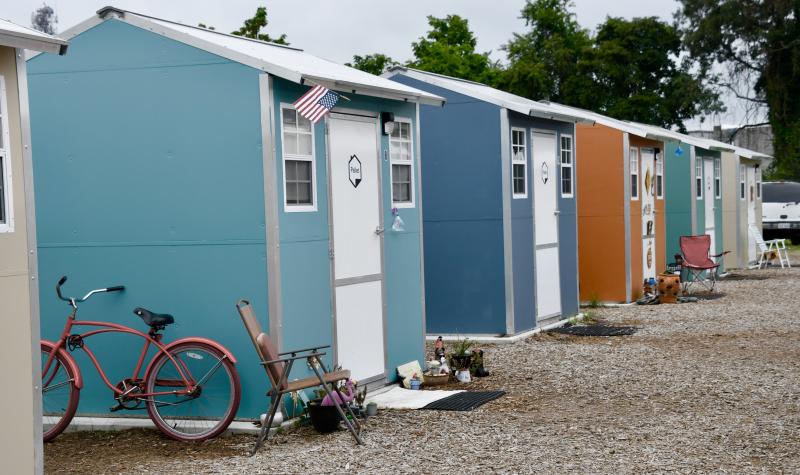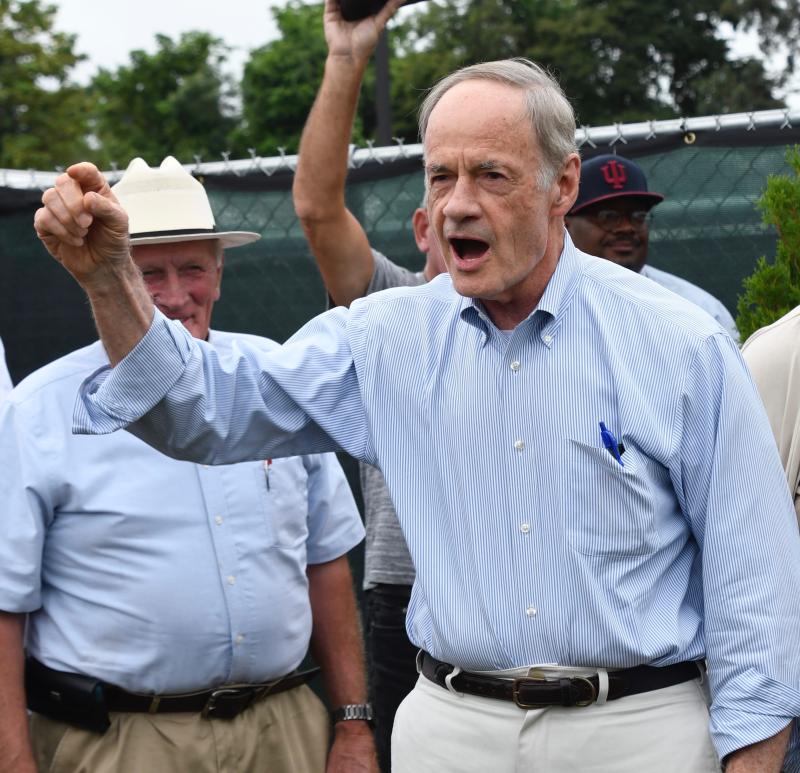Springboard Pallet Village celebrates opening
The Springboard Pallet Village in Georgetown hosted a donor recognition and ribbon-cutting ceremony Aug. 4, attended by a large group of elected officials, board members, staff, partners and donors.
The entire Delaware federal delegation was present, including U.S. Rep. Lisa Blunt Rochester and U.S. Sens. Tom Carper and Chris Coons.
The delegation also announced that the long-awaited American Rescue Plan Act grant of $2.4 million for Springboard Collaborative is finally available.
Jeff Ronald, Springboard co-founder, said the village has already changed lives in just six months of a two-year demonstration project. He said people are getting better healthcare, mental healthcare, and help to quell addiction and find jobs.
Ronald also announced the Vision 2029 campaign to end chronic homelessness in Delaware in six years. “It's a bold, audacious plan, but it is solvable if we all collaborate together,” he said.
Judson Malone, the other co-founder, who lives in Georgetown, was the driving force to build the village. He said the project would not have been possible without assistance from Georgetown town officials and First State Community Action Agency, on whose property the village is located.
“It's been a long journey to get the capital we've been trying for including the ARPA funding. When it was delayed, Preston and Kathleen Schell stepped forward at a key point to keep the project alive,” he said.
He also thanked the village staff led by manager Trish Hill, who was charged with processing the residents. “She and her staff were here overnight several times,” Malone said.
First State CAA Executive Director Bernice Edwards said she was tired of people talking and not taking action. “So we said, yes, you can be in our backyard,” she said.
Edwards said the effort can't stop with the village. “They have to move all of the residents to transitional housing, and if we don't have it, you can't put them there. Let's do that next,” she said.
Not the end of journey
With Milford Mayor Archie Campbell in attendance, officials announced that the next location for a Pallet Village is likely Milford.
“The ARPA funds mean a lot in Sussex County, and now we need to take this model to Milford,” said Lt. Gov. Bethany Hall-Long.
“This is not the end of the journey, but it's a vital first step toward restoration,” said Rep. Ruth Briggs King, R-Georgetown. “It requires heavy lifting every day. We now need to solve affordable and workforce housing issues.”
“This is a model for the country as it helps transform the lives of men and women,” Carper said, adding people are looking for employment, but they need affordable housing first. “That's the biggest impediment.”
Coons said it's inconceivable that people sleep in the streets in the richest country in the world. “You have started on a great journey. So many here have done the work. It's the boldest example of what a community can do, and it's not stopping here,” he said.
“We are saying, ‘yes, in my backyard’ because we are all in it together,” Blunt Rochester said.
Ron Baron, Del-One Federal Credit Union president, talked about the credit union’s successful collaboration that includes financial counseling and setting up accounts for village residents. Todd Graham, Highmark Health Options president, said his company administers the Medicaid program in the state, which helps provide wrap-around services at the village.
Dave Baker, USDA Rural Development Delaware director, said a $722,000 grant will help with food costs and preparation at the village for the next three years.
About the village
The village is made up of 40 65-square-foot units with one or two beds with bedding, heat and air conditioning, and storage space.
Since the units do not contain plumbing, two bathroom/shower units are part of the village. Each resident must complete an intake process where they establish a set of goals.
Meals are provided, and a temporary commercial tent has been erected at the site until construction of a community building can be completed.
The facility also has a store filled with a variety of basic needs.
After three months, residents should be on the path to self-sufficiency and finding permanent housing.
Springboard is a statewide nonprofit shelter and housing developer for people experiencing homelessness and those who are housing insecure. Springboard provides administration and fundraising for the village.
Of the 73 people who have lived at the village, 58 (79%) have not returned to unsheltered homelessness, 36 (52%) received substance-use or mental health services, 30 (41%) found or maintained jobs, 22 (31%) opened Del-One Federal Credit Union accounts, 17 (23%) were connected to new medical providers and six (8%) attended GED or training classes.
Of the 33 who have moved out of the village, 11 have found permanent housing and four have entered substance-abuse programs.
Demographics: 60% are females, 38% are males, 2% are nonbinary; the ages of 71% are 25-59; 44% are white, 43% are African American, 10% are Hispanic and 3% are other nationalities.
